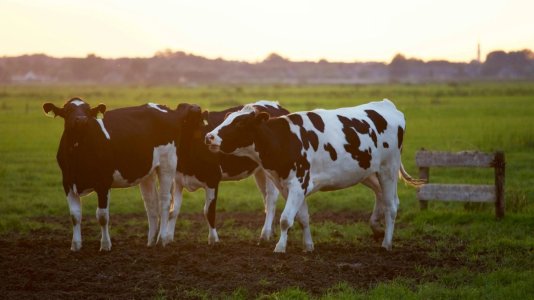New update: This treatment shows promising potential in protecting against bird flu
By
Veronica E.
- Replies 0
As we age, staying informed about health advancements becomes more important than ever—especially when they could impact our well-being. In recent years, we’ve seen how quickly viruses can spread, raising concerns about the next potential outbreak.
While bird flu may not always make headlines, scientists are keeping a close eye on it, and for good reason.
Now, there's an update on a promising new development that could change the way we protect ourselves.
Researchers have been testing a treatment that has shown impressive results in early trials, and it may offer a new level of defense against bird flu. Let’s take a closer look at what this means and why it matters.

The medical community is abuzz with promising results from an antibody-based immune therapy that has been tested on monkeys. Unlike seasonal flu shots that need to be updated regularly, this treatment targets a more stable region of the virus, meaning it could remain effective even as bird flu evolves.
Professor Douglas Reed, an immunologist from the University of Pittsburgh, expressed optimism, stating, "This type of prevention can be very useful in controlling infection outbreaks and containing the bird flu pandemic."
While bird flu is mostly found in wild birds, it has also been detected in cows and other livestock, raising concerns about potential transmission to humans. Since 2024, the Centers for Disease Control and Prevention (CDC) has reported 67 human cases of bird flu in the US, including one fatality.
Though the numbers are small, experts warn that the possibility of a wider outbreak is something we shouldn’t ignore.
In recent trials, the antibody treatment—known as "MEDI8852"—was able to protect monkeys from severe illness and death after exposure to the H5N1 bird flu virus.
The infection method used in the study was designed to mirror real-life exposure, making the results even more promising.

The success of MEDI8852 in animal studies is paving the way for future human treatments.
Scientists believe this therapy could be especially useful for those at higher risk, such as older adults, healthcare workers, and first responders.
The good news? This antibody has already been tested in humans for other types of flu, which could speed up the approval process for its use against bird flu.
Researchers are also studying additional antibody treatments that may be used alone or in combination with MEDI8852 for even stronger protection.
Looking ahead
One of the biggest challenges in flu prevention is how quickly the virus mutates, making vaccines a moving target. However, this new approach focuses on a stable part of the virus, much like targeting the trunk of a tree instead of its ever-changing leaves. This could be a major step toward more effective flu prevention strategies.
The research team is now testing the antibody against the H5N1 strain currently spreading among cows in the US, and they are hopeful about what comes next.
This breakthrough brings hope for a safer future, offering a new layer of protection against bird flu.
With continued research and innovation, we move closer to stronger, more effective ways to safeguard our health.

With new advancements in medicine, staying informed is key to making the best choices for our health. What do you think about this potential new treatment? Are you concerned about the spread of bird flu? We'd love to hear your thoughts—join the discussion in the comments below.
Also read: Protect yourself: The alarming new bird flu symptoms you need to know in 2025
While bird flu may not always make headlines, scientists are keeping a close eye on it, and for good reason.
Now, there's an update on a promising new development that could change the way we protect ourselves.
Researchers have been testing a treatment that has shown impressive results in early trials, and it may offer a new level of defense against bird flu. Let’s take a closer look at what this means and why it matters.

Researchers are testing the promising antibody treatment on monkeys to combat bird flu. Image Source: Pexels / Edward Jenner.
A breakthrough in immune therapy
The medical community is abuzz with promising results from an antibody-based immune therapy that has been tested on monkeys. Unlike seasonal flu shots that need to be updated regularly, this treatment targets a more stable region of the virus, meaning it could remain effective even as bird flu evolves.
Professor Douglas Reed, an immunologist from the University of Pittsburgh, expressed optimism, stating, "This type of prevention can be very useful in controlling infection outbreaks and containing the bird flu pandemic."
Understanding the risk
While bird flu is mostly found in wild birds, it has also been detected in cows and other livestock, raising concerns about potential transmission to humans. Since 2024, the Centers for Disease Control and Prevention (CDC) has reported 67 human cases of bird flu in the US, including one fatality.
Though the numbers are small, experts warn that the possibility of a wider outbreak is something we shouldn’t ignore.
In recent trials, the antibody treatment—known as "MEDI8852"—was able to protect monkeys from severe illness and death after exposure to the H5N1 bird flu virus.
The infection method used in the study was designed to mirror real-life exposure, making the results even more promising.

Cows, like other animals, are susceptible to bird flu, highlighting the virus's wide impact. Image Source: Pexels / Matthias Zomer.
What this means for human protection
The success of MEDI8852 in animal studies is paving the way for future human treatments.
Scientists believe this therapy could be especially useful for those at higher risk, such as older adults, healthcare workers, and first responders.
The good news? This antibody has already been tested in humans for other types of flu, which could speed up the approval process for its use against bird flu.
Researchers are also studying additional antibody treatments that may be used alone or in combination with MEDI8852 for even stronger protection.
Looking ahead
One of the biggest challenges in flu prevention is how quickly the virus mutates, making vaccines a moving target. However, this new approach focuses on a stable part of the virus, much like targeting the trunk of a tree instead of its ever-changing leaves. This could be a major step toward more effective flu prevention strategies.
The research team is now testing the antibody against the H5N1 strain currently spreading among cows in the US, and they are hopeful about what comes next.
This breakthrough brings hope for a safer future, offering a new layer of protection against bird flu.
With continued research and innovation, we move closer to stronger, more effective ways to safeguard our health.
Key Takeaways
- Antibody-based immune therapy is showing promise as a preventative measure against bird flu following successful trials in monkeys.
- The prevention works by targeting a stable region of the bird flu virus, helping it remain effective even as new variants emerge.
- The antibody "MEDI8852" used in the study protected monkeys from severe disease and death, with effects lasting 8–12 weeks.
- The success of this study paves the way for developing similar preventative treatments for humans, particularly for first responders and those in close contact with infected individuals.
With new advancements in medicine, staying informed is key to making the best choices for our health. What do you think about this potential new treatment? Are you concerned about the spread of bird flu? We'd love to hear your thoughts—join the discussion in the comments below.
Also read: Protect yourself: The alarming new bird flu symptoms you need to know in 2025





